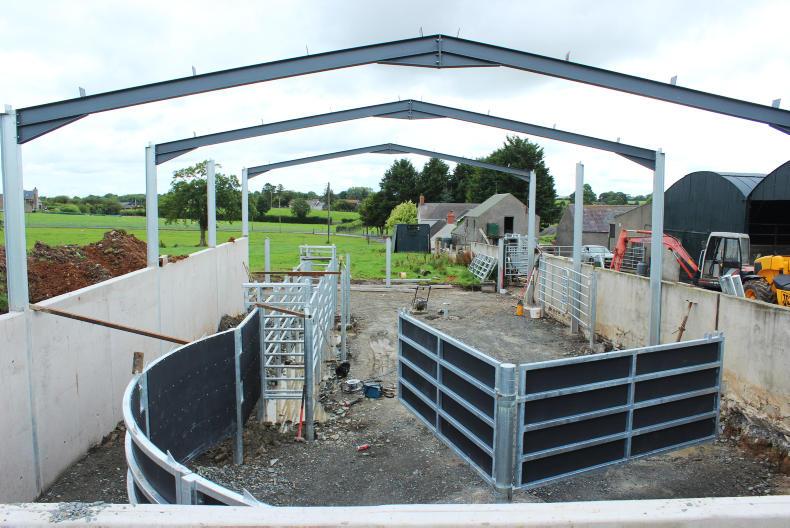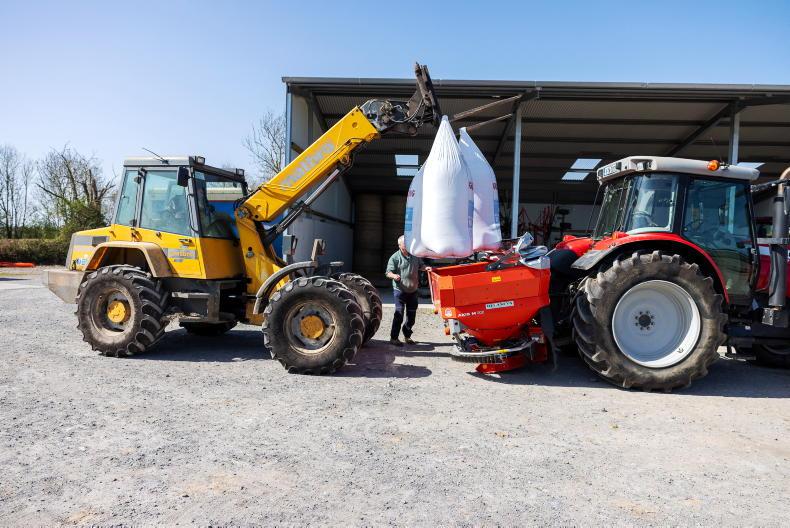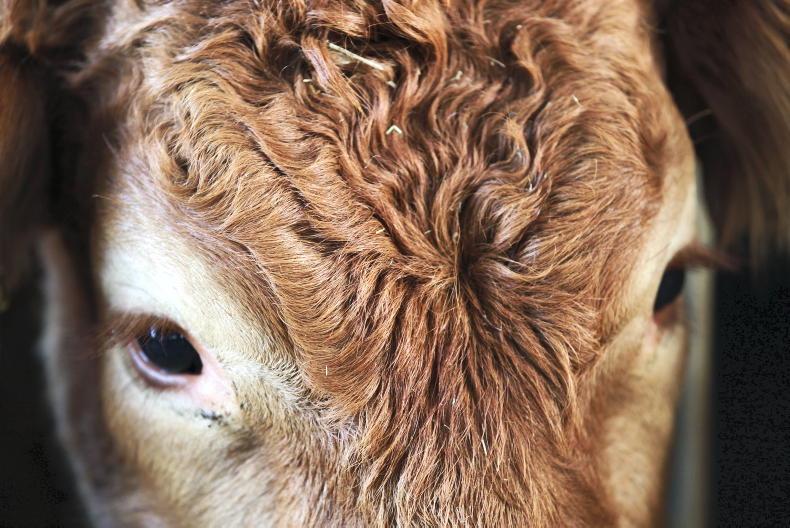Have you ever taken the time to evaluate how much time or money you spend trying to keep your family and employees healthy? Have you ever taken the time to understand how much sick pay, insurance, accidents or sick leave actually costs? The reality is most farmers don’t.
Proactively investing in health and safety can help lower the number of fatalities, injuries, and illnesses on farms. It can boost a farm’s bottom line through savings in either the farmer owner or the employee compensation costs while also improving productivity.
This investment can also improve your financial performance. Recent studies have found companies that focus on the health and safety of their workforce outperform the stock market and yield greater value for their investors.
We’ve listed some areas to help determine where farmers may want to consider investing:
Health evaluation of workers.Occupational injury and illness management.Mental and behavioural health.Workplace health hazard evaluations, inspection, and abatement.Education regarding worksite hazards.Personal protective equipment.Health promotion and wellness.Absence and disability management.Invest in keeping children safe
On average, between 2006 and 2015, two or three children were killed in farm accidents every year. The main causes of child fatal accidents are tractors/machinery and drowning.
Adults have a huge responsibility to make sure that the risks posed to children on a farm are assessed and controls put in place to prevent death and injury.
Invest in a safe and secure play area for children away from all work activities, in full view of the dwelling house.Action should be taken to keep children away from dangerous areas.To eliminate the risk of drowning, all open water tanks, wells and slurry tanks should be fenced off.Invest in child passenger seat with safety belts. Children between the ages of seven and 16 may ride on a tractor provided the tractor is fitted with a properly designed and fitted passenger seat (with seat belts) inside a safety cab or frame.Under no circumstances should a child under seven years of age be carried inside the cab of a tractor (irrespective of
whether a passenger seat is provided or not).Invest in a safe electricity supply
The fuse board should be regularly inspected by a competent electrician.Regularly check for and replace immediately any frayed and damaged cables around the farmyard.Place leads and cables in positions where they will be safe from damage.Do not use domestic-type sockets, plugs or switches in farm buildings.Be aware of overhead lines. Contractors and other persons entering the farm should be made aware of overhead power lines. Check ground clearance before passing underneath lines. Keep away from any fallen lines, and report to ESB Networks immediately.Invest in fuses and miniature circuit-breakers (MCBs)
Use an MCB or a fuse to protect the circuit from fault or overload.Use the correct type and rating. Do not replace an MCB with one of a larger size.Find out the cause of the fuse blowing or MCB tripping.If you are unsure as to the adequacy of your fuse board, MCB assembly or any other part of your electrical installation, check with a competent electrician
or electrical contractor.Invest in plugs and sockets
Domestic-type plugs and sockets are not suitable for use on farms.Plugs and sockets must be of sufficient capacity and appropriate to the voltage of the equipment used.Invest in electric welders
Plugs and sockets should be of adequate capacity (32 amps).Exposed conductive parts of the welder must be bonded together and connected to the welder protective conductor at a common terminal.The return conductor cable should be connected to the work piece using a proper clamp.User’s eyes must be protected by a suitable filter lens contained in a welding helmet or hand-held shield, which protects face and neck against heat radiation.Hands and forearms should be protected by suitable gloves and by keeping sleeves pulled down.ESB requires notification before an electric welder is installed.Invest in a generators
Portable generators should have industrial-type sockets located on the generator frame for connection.Generators supplying permanent wired installations should have mechanically interlocked switching facilities between ESB and generator supplies (the
switch should be clearly marked to
show the ESB, generator on and off positions).The ESB requires notification when a standby generator is to be installed.Invest in electric fences
Don’t run fences parallel to power lines because dangerous induced voltages might result.Keep fence earth a minimum of 10 metres from main installation earth.Never “twitch” fence wires under power lines.Never electrify barbed wire.Maintain safe clearances from overhead wires.Invest in the little things
Avoid slips and trips by keeping the yard and farm buildings tidy at all times. Invest in adequate lighting in the farmyard and buildings.Put a vermin control programme in place on your farm.Provide suitable washing and toilet facilities on your farm.
Have you ever taken the time to evaluate how much time or money you spend trying to keep your family and employees healthy? Have you ever taken the time to understand how much sick pay, insurance, accidents or sick leave actually costs? The reality is most farmers don’t.
Proactively investing in health and safety can help lower the number of fatalities, injuries, and illnesses on farms. It can boost a farm’s bottom line through savings in either the farmer owner or the employee compensation costs while also improving productivity.
This investment can also improve your financial performance. Recent studies have found companies that focus on the health and safety of their workforce outperform the stock market and yield greater value for their investors.
We’ve listed some areas to help determine where farmers may want to consider investing:
Health evaluation of workers.Occupational injury and illness management.Mental and behavioural health.Workplace health hazard evaluations, inspection, and abatement.Education regarding worksite hazards.Personal protective equipment.Health promotion and wellness.Absence and disability management.Invest in keeping children safe
On average, between 2006 and 2015, two or three children were killed in farm accidents every year. The main causes of child fatal accidents are tractors/machinery and drowning.
Adults have a huge responsibility to make sure that the risks posed to children on a farm are assessed and controls put in place to prevent death and injury.
Invest in a safe and secure play area for children away from all work activities, in full view of the dwelling house.Action should be taken to keep children away from dangerous areas.To eliminate the risk of drowning, all open water tanks, wells and slurry tanks should be fenced off.Invest in child passenger seat with safety belts. Children between the ages of seven and 16 may ride on a tractor provided the tractor is fitted with a properly designed and fitted passenger seat (with seat belts) inside a safety cab or frame.Under no circumstances should a child under seven years of age be carried inside the cab of a tractor (irrespective of
whether a passenger seat is provided or not).Invest in a safe electricity supply
The fuse board should be regularly inspected by a competent electrician.Regularly check for and replace immediately any frayed and damaged cables around the farmyard.Place leads and cables in positions where they will be safe from damage.Do not use domestic-type sockets, plugs or switches in farm buildings.Be aware of overhead lines. Contractors and other persons entering the farm should be made aware of overhead power lines. Check ground clearance before passing underneath lines. Keep away from any fallen lines, and report to ESB Networks immediately.Invest in fuses and miniature circuit-breakers (MCBs)
Use an MCB or a fuse to protect the circuit from fault or overload.Use the correct type and rating. Do not replace an MCB with one of a larger size.Find out the cause of the fuse blowing or MCB tripping.If you are unsure as to the adequacy of your fuse board, MCB assembly or any other part of your electrical installation, check with a competent electrician
or electrical contractor.Invest in plugs and sockets
Domestic-type plugs and sockets are not suitable for use on farms.Plugs and sockets must be of sufficient capacity and appropriate to the voltage of the equipment used.Invest in electric welders
Plugs and sockets should be of adequate capacity (32 amps).Exposed conductive parts of the welder must be bonded together and connected to the welder protective conductor at a common terminal.The return conductor cable should be connected to the work piece using a proper clamp.User’s eyes must be protected by a suitable filter lens contained in a welding helmet or hand-held shield, which protects face and neck against heat radiation.Hands and forearms should be protected by suitable gloves and by keeping sleeves pulled down.ESB requires notification before an electric welder is installed.Invest in a generators
Portable generators should have industrial-type sockets located on the generator frame for connection.Generators supplying permanent wired installations should have mechanically interlocked switching facilities between ESB and generator supplies (the
switch should be clearly marked to
show the ESB, generator on and off positions).The ESB requires notification when a standby generator is to be installed.Invest in electric fences
Don’t run fences parallel to power lines because dangerous induced voltages might result.Keep fence earth a minimum of 10 metres from main installation earth.Never “twitch” fence wires under power lines.Never electrify barbed wire.Maintain safe clearances from overhead wires.Invest in the little things
Avoid slips and trips by keeping the yard and farm buildings tidy at all times. Invest in adequate lighting in the farmyard and buildings.Put a vermin control programme in place on your farm.Provide suitable washing and toilet facilities on your farm. 








SHARING OPTIONS